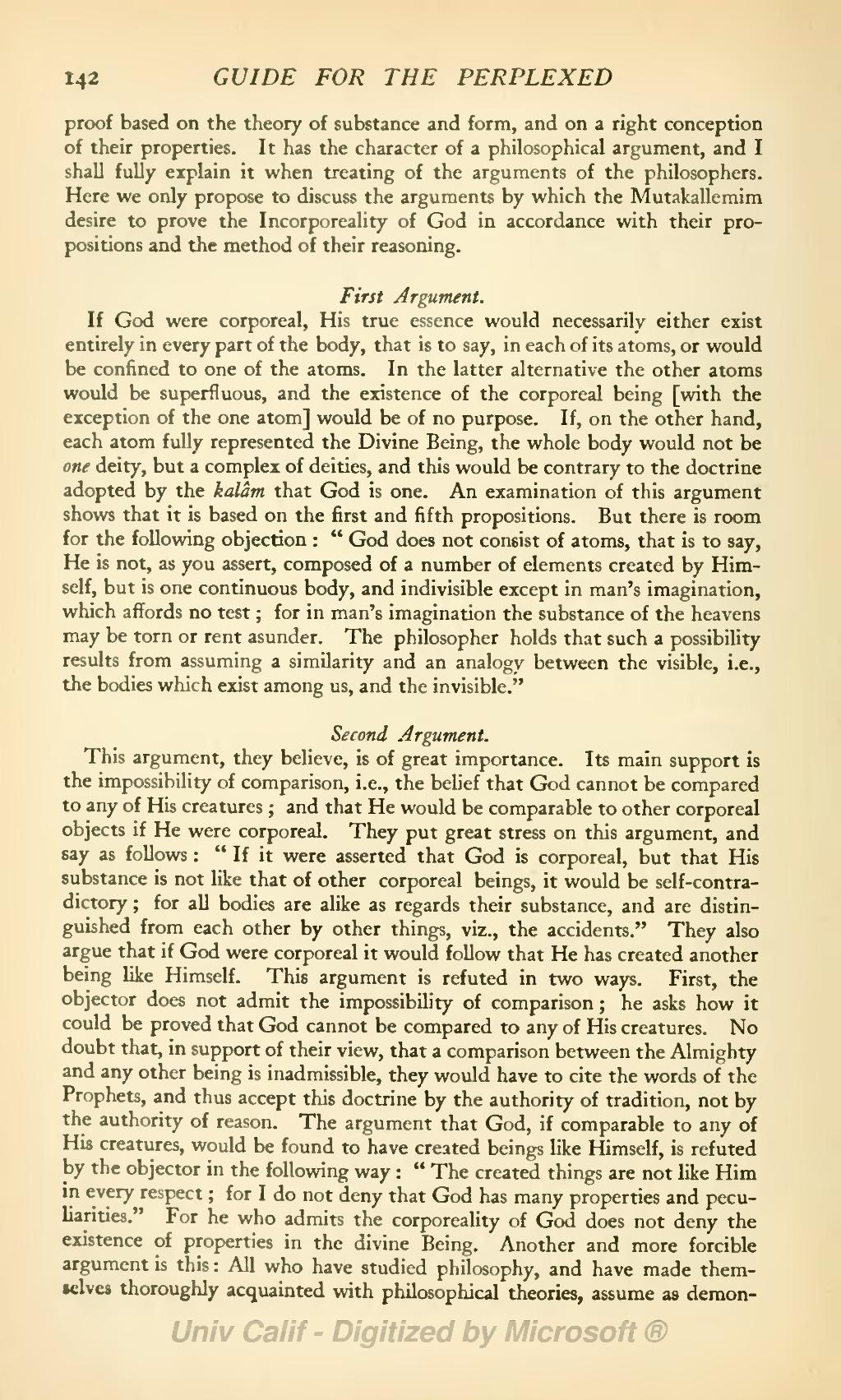based on the theory of substance and form, and on a right conception of their properties. It has the character of a philosophical argument, and I shall fully explain it when treating of the arguments of the philosophers. Here we only propose to discuss the arguments by which the Mutakallemim desire to prove the Incorporeality of God in accordance with their propositions and the method of their reasoning.
First Argument.
If God were corporeal, His true essence would necessarily either exist entirely in every part of the body, that is to say, in each of its atoms, or would be confined to one of the atoms. In the latter alternative the other atoms would be superfluous, and the existence of the corporeal being [with the exception of the one atom] would be of no purpose. If, on the other hand, each atom fully represented the Divine Being, the whole body would not be one deity, but a complex of deities, and this would be contrary to the doctrine adopted by the kalam that God is one. An examination of this argument shows that it is based on the first and fifth propositions. But there is room for the following objection:" God does not consist of atoms, that is to say, He is not, as you assert, composed of a number of elements created by Himself, but is one continuous body, and indivisible except in man's imagination, which affords no test; for in man's imagination the substance of the heavens may be torn or rent asunder. The philosopher holds that such a possibility results from assuming a similarity and an analogy between the visible, i.e., the bodies which exist among us, and the invisible."
Second Argument.
This argument, they believe, is of great importance. Its main support is the impossibility of comparison, i.e., the belief that God cannot be compared to any of His creatures; and that He would be comparable to other corporeal objects if He were corporeal. They put great stress on this argument, and say as follows:" If it were asserted that God is corporeal, but that His substance is not like that of other corporeal beings, it would be self-contradictory: for all bodies are alike as regards their substance, and are distinguished from each other by other things, viz., the accidents." They also argue that if God were corporeal it would follow that He has created another being like Himself. This argument is refuted in two ways. First, the objector does not admit the impossibility of comparison; he asks how it could be proved that God cannot be compared to any of His creatures. No doubt that, in support of their view, that a comparison between the Almighty and any other being is inadmissible, they would have to cite the words of the Prophets, and thus accept this doctrine by the authority of tradition, not by the authority of reason. The argument that God, if comparable to any of His creatures, would be found to have created beings like Himself, is refuted by the objector in the following way:" The created things are not like Him in every respect; for I do not deny that God has many properties and peculiarities." For he who admits the corporeality of God does not deny the existence of properties in the divine Being. Another and more forcible argument is this: All who have studied philosophy, and have made themselves thoroughly acquainted with philosophical theories, assume as demonstrated
